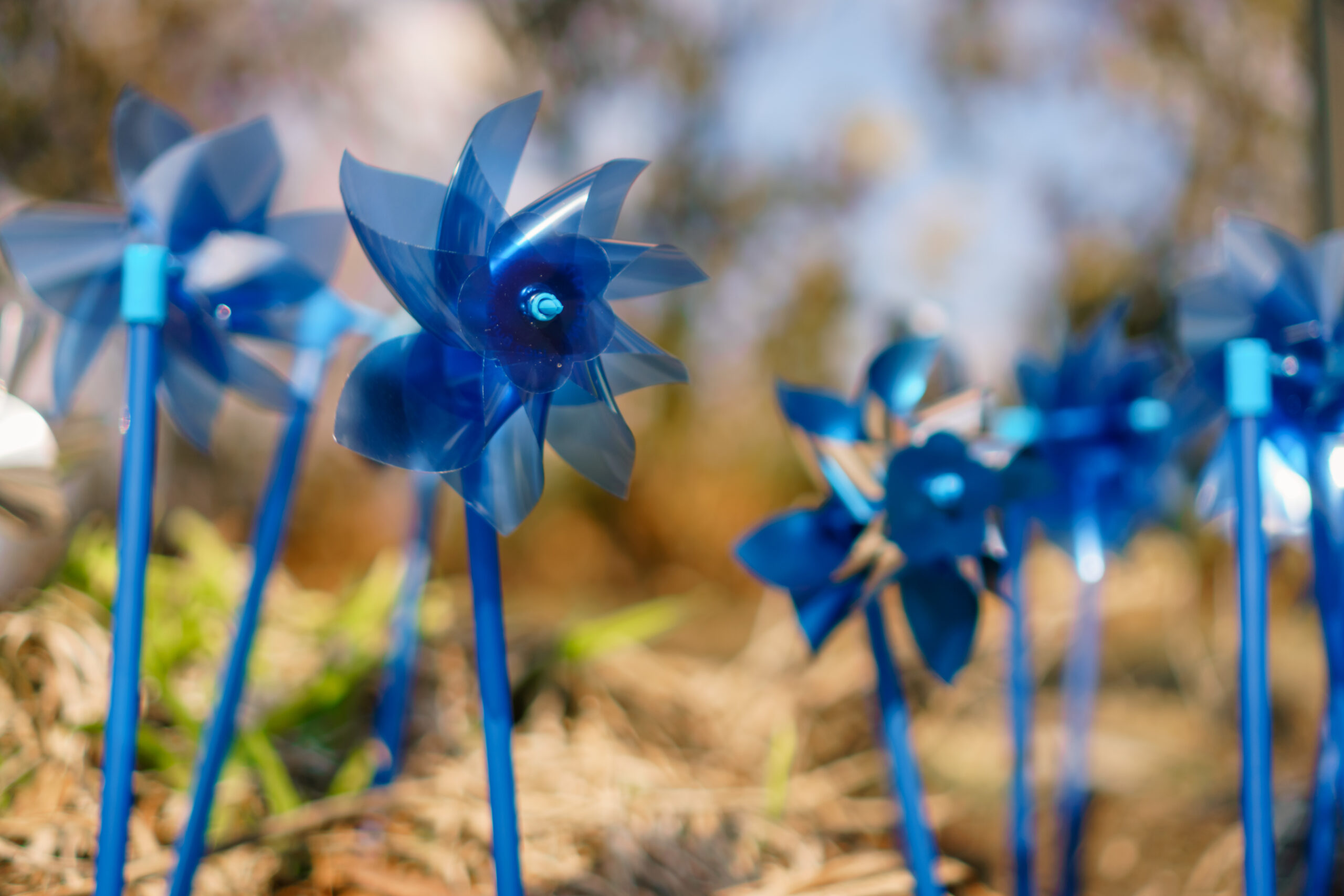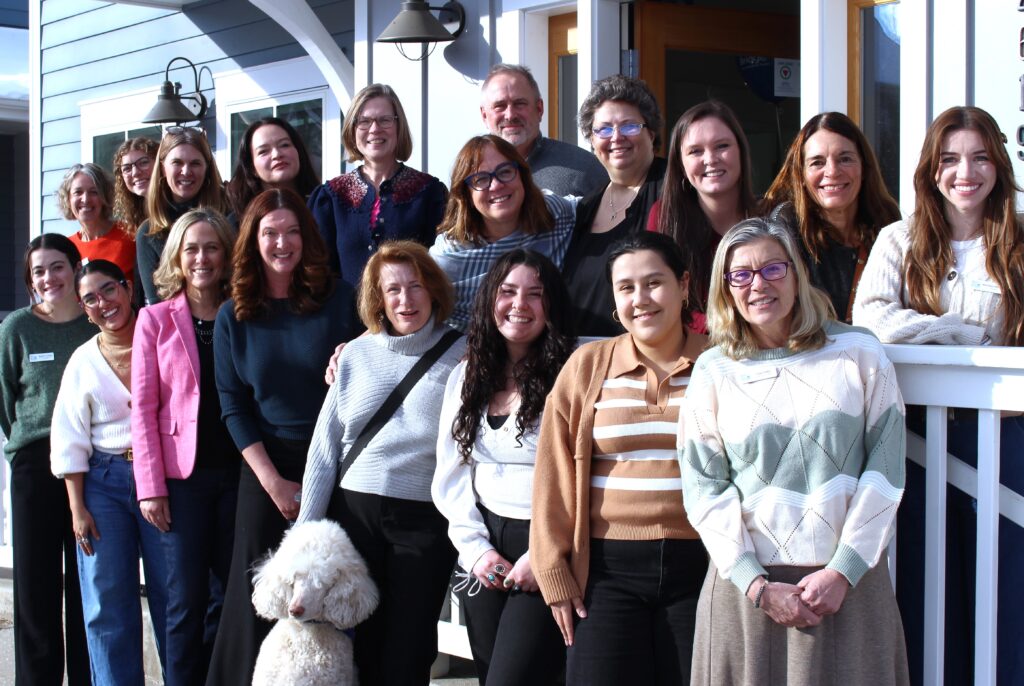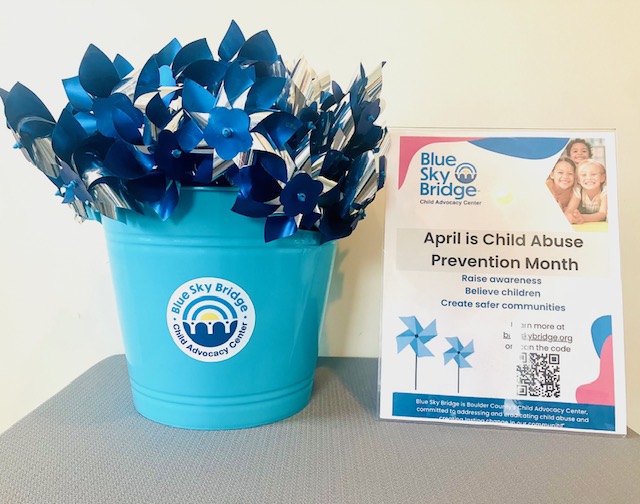
Content warning: This article discusses sexual violence and childhood sexual abuse. It may be upsetting to some readers.
Susana Avelar has started to notice something during her work for Blue Sky Bridge.
A forensic interviewer, it is her job to speak to children who have experienced sexual abuse and gather details of the incidents. The taped conversations are admissible as evidence, allowing kids to avoid cops and courts altogether.
The youth she interviews in Boulder County often have things in common, a similar language. They use correct anatomical language for their body parts. They are clearly communicating what happened to them, report saying no to their abusers, and quickly telling trusted adults — all facets of Blue Sky Bridge’s school-based education programs.
“One kiddo, he was quoting the program in the interview,” Avelar said. “He followed the steps he was told to do — tell a trusted adult, and when they didn’t react as they should have, he told again. This is something straight from the curriculum given to third graders.”
That example is one of many that have led Avelar to believe Blue Sky Bridge’s in-school work is having a positive impact in children’s lives.
“Kids are reporting much faster than what we’d been seeing; we’re seeing things be less egregious,” she said. While the abuse is still happening, kids are armed with the knowledge and skills to self-report, rather than authorities being alerted by hospitals or other mandatory reporters.
“We were seeing cases not coming out until there’s a pregnancy or someone got caught. That’s what we mean by less egregious — it’s only happening twice instead of years and years of abuse.”
Blue Sky Bridge intends to hire a third-party research consultant to explore whether or not these observations are accurate.
“I’m waiting to kind of get that verification that it’s not just in my head,” Avelar said. “It’s sometimes even a feeling you get; there’s something different about how Boulder kids talk about sex abuse when they’re coming in for these interviews.”
But while Blue Sky Bridge awaits proof that the programs are working, the instruction itself may be on the chopping block as the nonprofit — and others like it throughout the country — are facing a funding shortfall at the federal level.

Something to celebrate
Between them, Avelar and her fellow interviewer Jillian Reid have conducted more than 2,800 forensic interviews; 432 in Boulder County alone.
Childhood sexual abuse (CSA) is incredibly prevalent. Numbers vary, but Blue Sky Bridge says 1 in 10 children will experience CSA before they turn 18. There were 329 reported cases of child exploitation from 2019-2024, according to data from the Boulder County District Attorney’s Office.
“The sad reality is that a large amount of these types of incidents go unreported,” District Attorney Michael Dougherty said in an emailed statement, “which means that victims never receive treatment or justice.”

To try and lessen the prevalence, Blue Sky Bridge developed training for kids and adults. Their body safety curriculum, which began in 2010, was taught to students in kindergarten, third and fifth grades at 62 schools throughout Boulder Valley School District (BVSD), St. Vrain Valley School District (SVVSD) and private schools in 2023-2024.
Last year, five staff members and 25 volunteers visited 347 classrooms, reaching a total of 6,667 kids and 1,858 school staff and parents. Blue Sky Bridge has been doing school-based education since 2010; thousands of students have received body safety education over the past 15 years.
According to Avelar, the program’s impact extends beyond the students who participated.
“Even if they didn’t attend a program, their friends were telling them, ‘You should tell,’” she said of her interview subjects. “Whereas in other counties, we were seeing kids hold secrets for kids. That’s another thing from the curriculum: We don’t keep secrets.”
As mandatory reporters, all BVSD staff must immediately notify law enforcement about suspected abuse. District spokesperson Randy Barber said “it doesn’t surprise” him that body safety lessons are having an impact.
“What Blue Sky Bridge is hearing is what we’re hearing,” Barber said. “That is something worthwhile to compliment and celebrate. Not every program has that kind of feedback.”
‘We feel the hit’
Despite that feedback, Blue Sky Bridge might have to scale back its school-based education as it faces severe funding cuts.
A major source of revenue for the nonprofit is the federal Victims of Crime Act (VOCA) fund. Paid for by fines and penalties associated with federal court cases, VOCA has been drying up for years due to changes in the criminal justice system resulting in fewer cases, particularly during COVID.
Colorado has lost 76% of VOCA funds since 2018, The Denver Post reported in December, leaving child advocacy centers across the state reeling. Experts anticipate another 27% drop in 2025.
“It’s been coming down for a while,” Avelar said. “This year is when we feel the hit.”
Blue Sky Bridge has so far been able to patch the gaps with other funding, but their ability to fill the hole is declining.

“The overall cost of operations continues to rise,” said Heidi Lawrence, Blue Sky’s development manager. “We look for support from other grants, individual donors, business sponsorship and family foundations to ensure our ability to bridge this gap and meet the needs of children and families in our community.”
Serving as a child advocacy center — the place where kids who are victims of and/or witnesses to certain crimes of abuse go — is Blue Sky Bridge’s primary mission. If more money can’t be found, “the first program that’s going to be dropped is prevention,” Avelar said.
If the call is between prevention and responding to things that have already happened,” she said, “unfortunately we’re going to have to go with things that have already happened.”
An uncertain future
To go to schools and train students, teachers and staff, it costs Blue Sky Bridge $86.77 per child and $31.33 per adult. Grants and donations pay for a majority of the in-school programs, according to Lawrence.
BVSD paid Blue Sky Bridge $25,000 for body safety education last school year, Barber said. He wouldn’t speculate on what the district might do if Blue Sky had to cut its prevention programs.
The district is facing its own uncertain financial future under the state’s constrained budget.
“It’s way too premature to know what those impacts might be,” Barber said. “We’re all looking at this funding challenge and saying, ‘How do we keep a really good thing going for the students?’
“That unfortunately is the time we are in right now.”
